The Just Cases newsletter focuses on tracking cases that are politically charged in some way. I will give commentary here and there, but my primary aim is to mark the progression of these cases and, along the way, perhaps determine if they are just.
United States v. Adams
(NYC Mayor Corruption Case)
Since we last touched on this case in Issue #2, Judge Ho has asked the parties for a joint proposed schedule for CIPA (Classified Information Procedures Act). Do you think they can agree on a schedule for that? Of course not!! Haha!
More interestingly, though, is that the SDNY has filed their Opposition to Adam’s Motion to Dismiss Count V. In Adam’s motion to dismiss, his counsel argues that,
“…the bribery count in the indictment suffers from the same fundamental legal problems that have long plagued the Justice Department’s aggressive targeting of prominent public officials: a sweeping view of federal statutes that criminalizes routine conduct and replaces measured ethics rules with the blunt force of federal criminal law. The consequence is a lack of fair notice to defendants and the kind of highly selective enforcement on display here. The Court should dismiss the bribery count for failure to allege a crime.”
Adam’s attorneys argue the indictment “fails to allege a crime” in Count V because it does not contain language detailing the “specific and focused” agreement for Adams to perform an “official act” in exchange for something of value. Under McDonnell v. United States and Snyder v. United States, two recent Supreme Court Opinions concerning the bribery statute in play here, the allegations cannot be so vague.
Also, they remind the Court that Adams was just a candidate for mayor at the time of some of this conduct and did not have the authority to influence or effectuate his end of the alleged quid pro quo.
Prosecutors respond,
“…the defendant seeks to avoid facing trial on a bribery charge by claiming that the Indictment does not describe the corrupt bargain he entered with sufficient precision. But Count Five describes a quid pro quo in which Adams sought and took luxury travel from a foreign official in exchange for influencing New York City’s regulation of a Manhattan skyscraper—including by pressuring the FDNY to allow the building to open without an inspection. Courts consistently find such allegations sufficient to demand trial before a jury. Moreover, Adams’s legal arguments contradict precedent, and his factual assertions stray far afield. Adams claims that accepting tens of thousand of dollars’ worth of benefits in exchange for pressuring a City agency is “routine” and “common.” (Mot. 10, 20). But however routine that may have been for Adams, the law permits a jury to conclude that it was nonetheless illegal.”
They then provide more specifics of the quid pro quo (problem solved! Haha!) before dismantling the McDonnell and Snyder-based arguments. It’s a good read if you are interested, and I’m confident that the Count V charge is not going away.
The other filing from prosecutors is an opposition to Adams’ motion for an evidentiary hearing and sanctions against the SDNY prosecutors. Basically, Adams attorneys are blaming SDNY for all the negative press coverage; they are alleging leaks from the investigation and grand jury to the media. They want a hearing to lay all of that out and ask for a dismissal.
It is highly interesting to me because it reveals that the investigation into Adams began in 2021, when he was a candidate.
That flies in the face of Adams’ claim that the investigation and charges are political retaliation against him for publicly speaking ill of Biden Administration immigration policies.
And consider that so many others have been caught up in this huge dragnet the SDNY has been pulling these past years, plus their other high profile cases, many of which have been successful… sparks thoughts of what other public corruption investigations might be covertly underway during this election cycle.
I’ve offered the thought before and I offer it again now: United States Attorney Damian Williams would be a cunning selection for Trump’s next Attorney General.
Back to the case tracking…
Prosecutors say the press coverage that Adams is upset about is the result of investigative steps, such as recipients of subpoenas sharing with others that they had been subpoenaed, or the execution of search warrants being noticed by the public and/or by the media, whose reporting was often inaccurate and fairly obviously premised on information coming from people close to Adams, not DOJ.
Some articles even included statements by Adams and his attorneys!
In fact, while the FBI and DOJ were attempting to guard the confidentiality of the investigation, Adams and his counsel were busy blabbing about it to the media and in court filings pre-indictment.
Also, some of the news articles cited in the defense’s motion that prosecutors are responding to here are actually describing searches carried out in service of a separate investigation! Whoops! LOL!
I think Adams and his team from very early on were continuously attempting to influence media coverage with their leaks and engaging with media, but it backfired badly and still is, so they are now trying to blame the SDNY for the mess that they made.
A few days later, October 21, a sealed filing appears on the dockets, no idea what it is, and then a week later, October 25, there are two replies from Adams side: one in support of their motion for an evidentiary hearing regarding alleged leaks from “law enforcement source” and a second in support of their motion to dismiss the bribery charge.
There’s also a joint filing regarding the CIPA schedule and this order from Judge Ho.
Looks like Friday afternoon could be interesting.
United States v. Combs
(Diddy RICO Case)
Just like in the Adams case above, there’s a very similar fight for Narrative Control in here as well.
Sean Combs’ attorneys filed a letter motion on October 20th, asking Judge Subramanian for an “order prohibiting further extrajudicial statements from prospective witnesses and their lawyers” and to “direct these potential witnesses and their counsel to remove all online postings under their control” that concern this case, as well as an order authorizing the deletion of comments on some social media posts made by law enforcement.
We have seen similar motions in other high profile cases, such as in the various cases against Trump. And in those cases it’s been more about the narratives than anything else, right?
Same here.
Judge Subramanian directed prosecutors to respond by the 30th, then used the occasion to remind both parties that they owe him a filing (a proposed order) for something else and should get back to him on that soon.
A few days later, both parties filed their proposals.
The only meaningful difference between the two is on the definition of “Government” and exactly which parties would be under the gag order.
Combs’ attorneys followed up with two more letters in support of their motion. (1, 2)
The first letter response pushes their view on the scope of the order and presses for it to be granted immediately.
The second letter response cites a recent New York Post article in which a “law enforcement source” is quoted.
On October 25, Judge Subramanian issued his Order.
“The Court has considered the parties’ proposed orders and declines to adopt either side’s proposal in full. Instead, the Court finds that an order underscoring the parties’ existing responsibilities under Local Rule 23.1 and Fed. R. Crim. P. 6(e) is appropriate. With this order in hand, both sides can make sure that anyone involved with this case or the related investigation understands what they are not permitted to disclose. To be clear, this order isn’t based on a finding that there has been any wrongdoing thus far, as the Court has made no findings at this juncture relating to defendant’s allegations that information related to the case has been leaked. The point of this order is to help ensure that nothing happens from now on that would interfere with a fair trial.”
United States v. Trump
(J6 Election Interference Case, DC)
Now we arrive at what I consider THE big news of this issue: Trump has filed his long awaited Motion to Dismiss based on Unlawful Appointment.
As I have pointed out repeatedly, Trump’s team filed, sort of as a packaged set, multiple motions to dismiss, each of a differing bases, in both this case in D.C. and in the Docs Case in Florida, but the one motion to dismiss that was missing from the DC case, the motion that was actually granted in the Docs Case(!), is this Motion to Dismiss based on Unlawful Appointment.
In the Docs Case, all of the Trump motions to dismiss were delivered on February 22, 2024.
In the DC case, they first filed a motion to dismiss based on Presidential Immunity on October 5, 2023, then followed up on October 23, 2023, with three more (Selective/Vindictive Prosecution, Statutory, and Constitution) but did not include one based on Unlawful Appointment.
In other words, I have been waiting on this filing in particular for an entire year, haha. So have Judge Chutkan and Smith, I’m sure.
When Judge Cannon dismissed the superseding indictment against President Trump in the Docs Case, she did so because,
“Special Counsel Smith’s appointment violates the Appointments Clause of the United States Constitution” and “Smith’s use of a permanent indefinite appropriation also violates the Appropriations Clause, U.S. Const., Art. I, § 9, cl. 7…”
“Special Counsel’s Smith’s prosecution of this action breaches two structural cornerstones of our constitutional scheme—the role of Congress in the appointment of constitutional officers, and the role of Congress in authorizing expenditures by law.
The Framers gave Congress a pivotal role in the appointment of principal and inferior officers. That role cannot be usurped by the Executive Branch or diffused elsewhere—whether in this case or in another case, whether in times of heightened national need or not. In the case of inferior officers, that means that Congress is empowered to decide if it wishes to vest appointment power in a Head of Department, and indeed, Congress has proven itself quite capable of doing so in many other statutory contexts.
But it plainly did not do so here…”
Judge Cannon was teed up to for such an order by Justice Thomas’ concurring opinion in Trump,
“I write separately to highlight another way in which this prosecution may violate our constitutional structure. In this case, the Attorney General purported to appoint a private citizen as Special Counsel to prosecute a former President on behalf of the United States. But, I am not sure that any office for the Special Counsel has been “established by Law,” as the Constitution requires. Art. II, §2, cl. 2. By requiring that Congress create federal offices “by Law,” the Constitution imposes an important check against the President—he cannot create offices at his pleasure. If there is no law establishing the office that the Special Counsel occupies, then he cannot proceed with this prosecution. A private citizen cannot criminally prosecute anyone, let alone a former President. No former President has faced criminal prosecution for his acts while in office in the more than 200 years since the founding of our country. And, that is so despite numerous past Presidents taking actions that many would argue constitute crimes. If this unprecedented prosecution is to proceed, it must be conducted by someone duly authorized to do so by the American people. The lower courts should thus answer these essential questions concerning the Special Counsel’s appointment before proceeding.”
Trump’s counsel cites both Thomas’ concurring opinion and Cannon’s order in their motion for a dismissal with prejudice in this case.
They also ask for “an injunction against additional spending by Smith… to prevent ongoing irreparable harm and to ensure complete relief for the Appropriations Clause violation.”
Trump and his attorneys filed the same sets of motions to dismiss in both cases (plus an additional one based on the Presidential Records Act in the Docs Case, for obvious reasons), but they left out this particular Appointments Violations motion, really the strongest one aside from the Presidential Immunity motion (which prevailed at SCOTUS)—until now.
They could have filed this motion at anytime over the past year, or even before. It was saved for this exact time period, a few weeks out from Election Day.
Like so much else with these cases, I think there is a design to that. Not sure it means they expect Judge Chutkan to grant it, not saying that. Just saying that this motion was prepared and set aside for either an if/when needed scenario, which could be the circumstance here, and this is the “break glass” emergency filing to prevent the case from proceeding to trial…
OR
Maybe they were just waiting for #OurBoyBlue to “slip up” one more time…
You’ll find reference to that “we gotta lock him up. remark on page 2 of Trump’s new motion to dismiss…
OR
Perhaps, and I know this is getting very hackneyed at this point, but in these two cases that Smith brought against Trump, I don’t think there’s anything that’s more ‘Trump Card’-like than the Presidential Immunity and Appointments Clause based motions to dismiss.
That’s it for this issue. Share your thoughts on these developments in the comments, and let me know what cases you would like to see in the newsletter.
Thanks for subscribing!
-Just Human
Support links:
Coffee—click here.
Just Human Merch—click here.
Benson’s Honey Farm affiliate link: click here.
Bootleg Products affiliate link: click here.
Manly Cans affiliate link—click here.
To find all of my links in one place, click here.



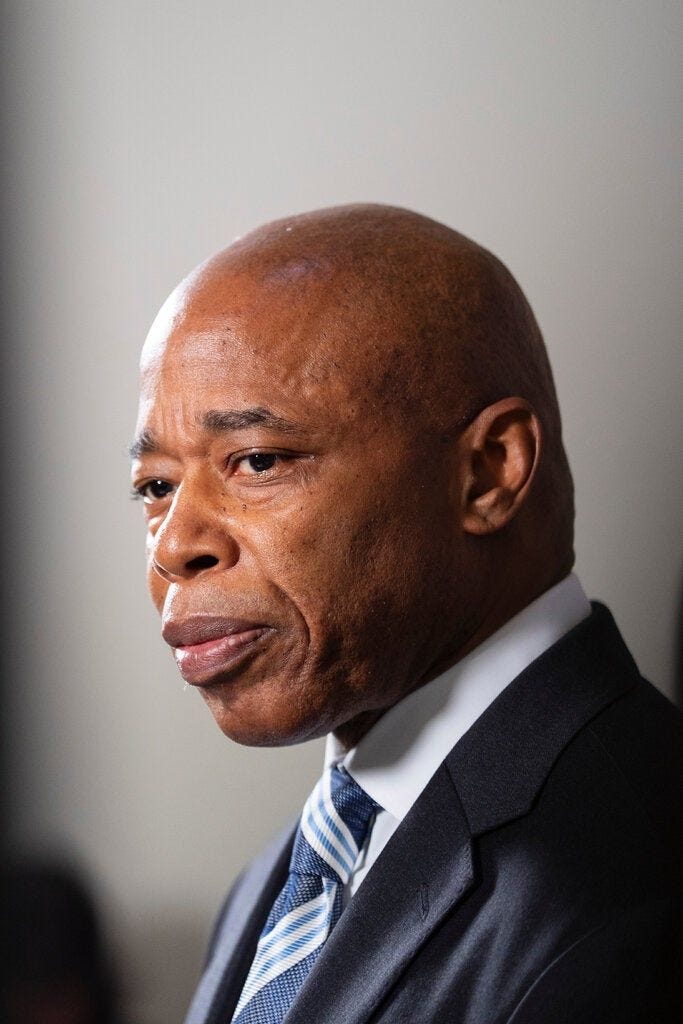

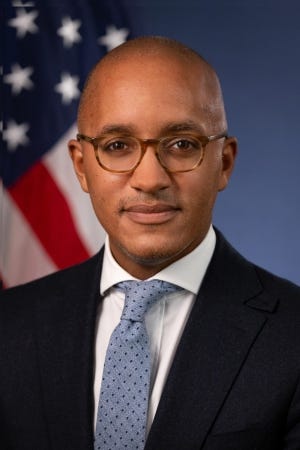
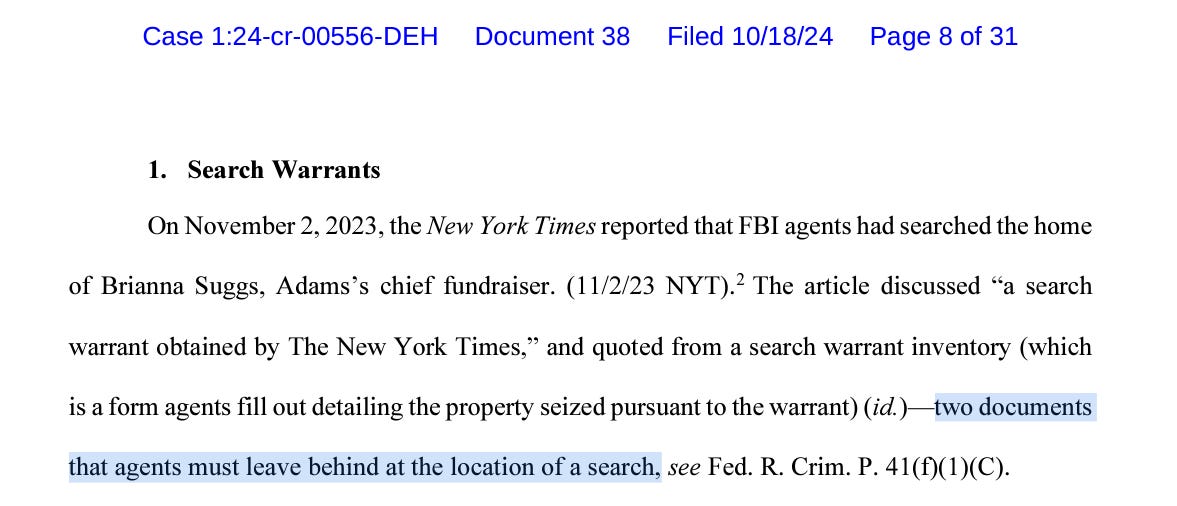
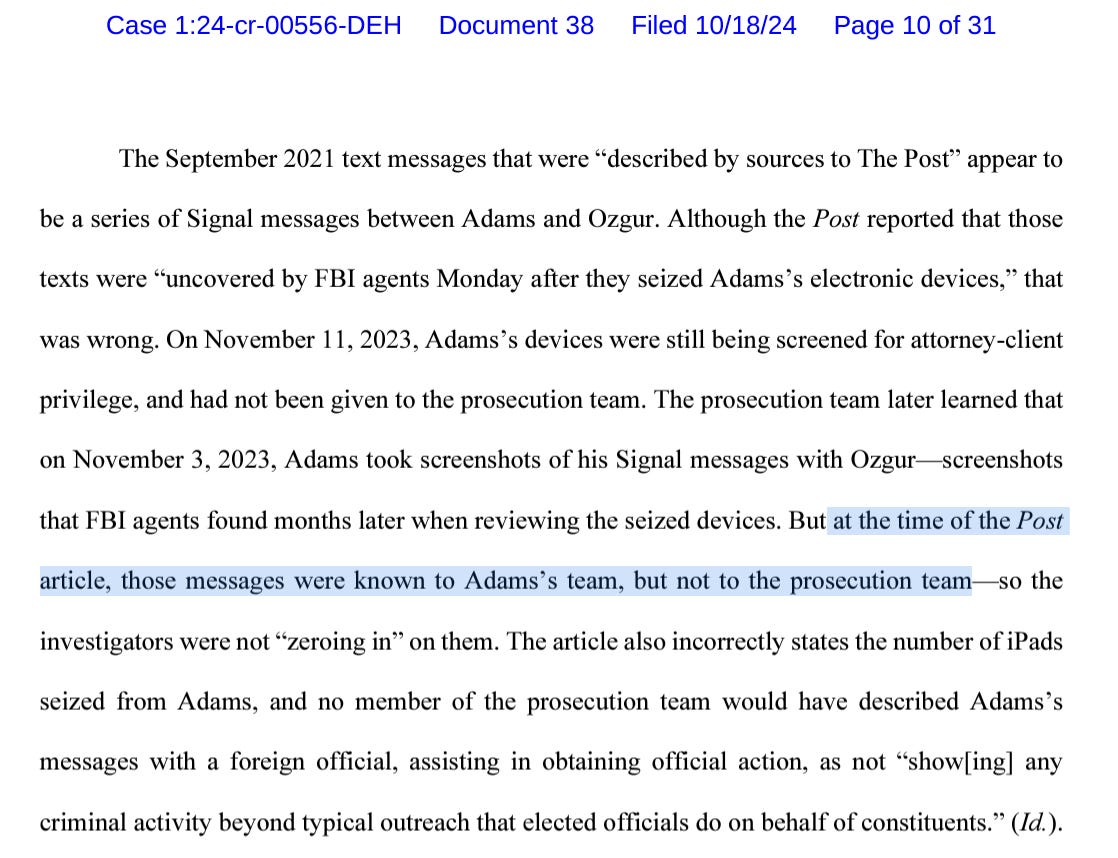
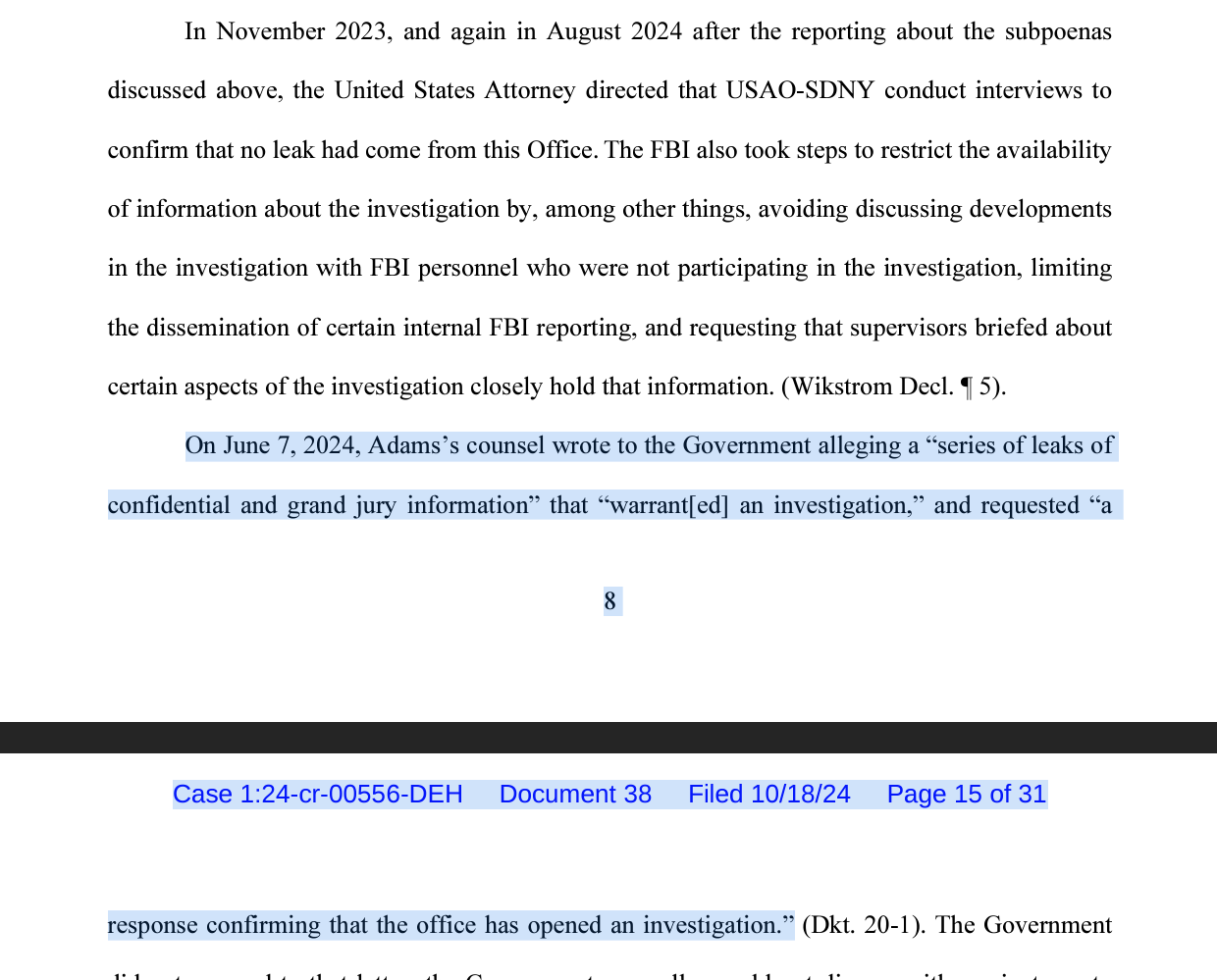
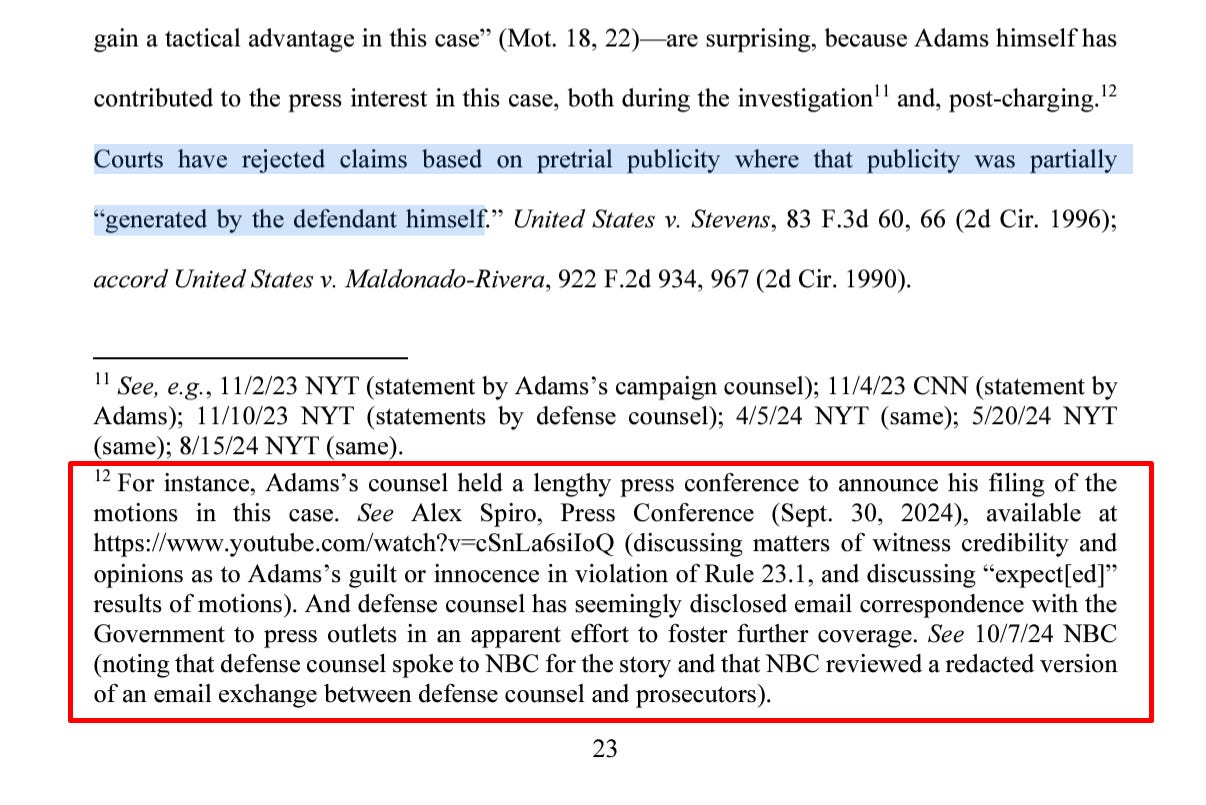
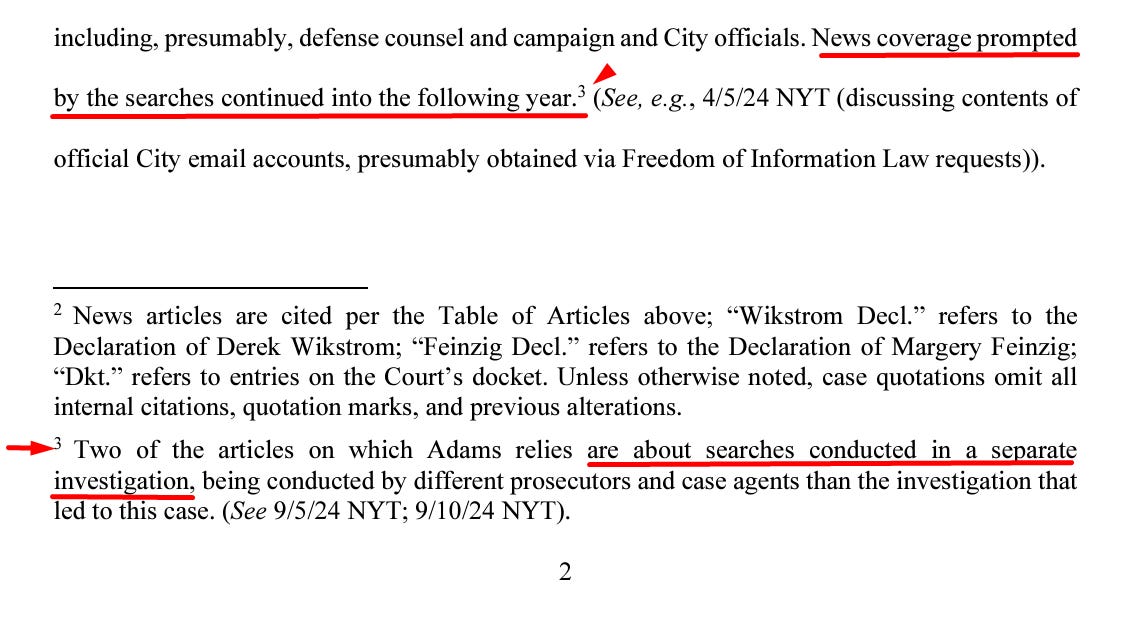
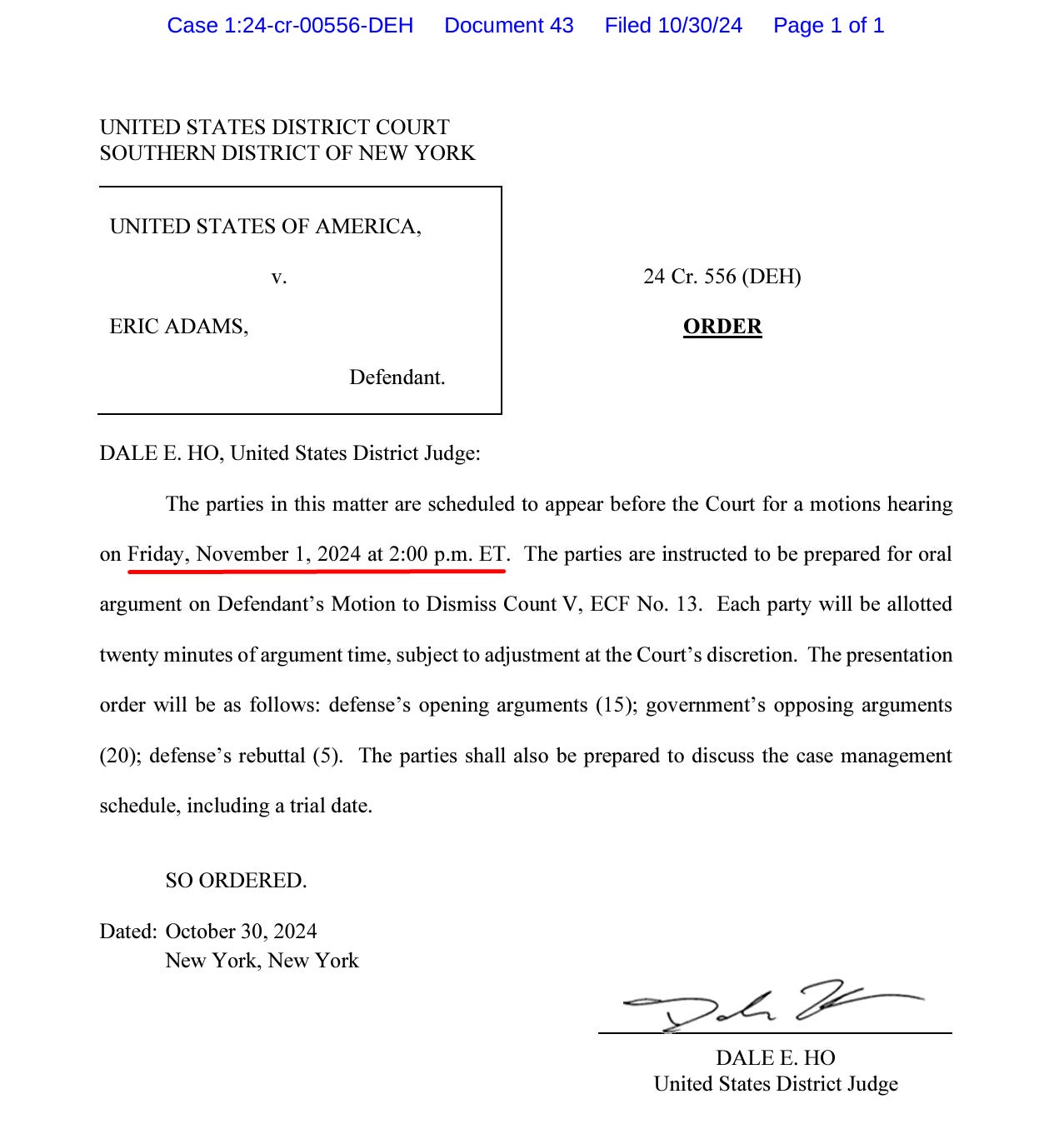
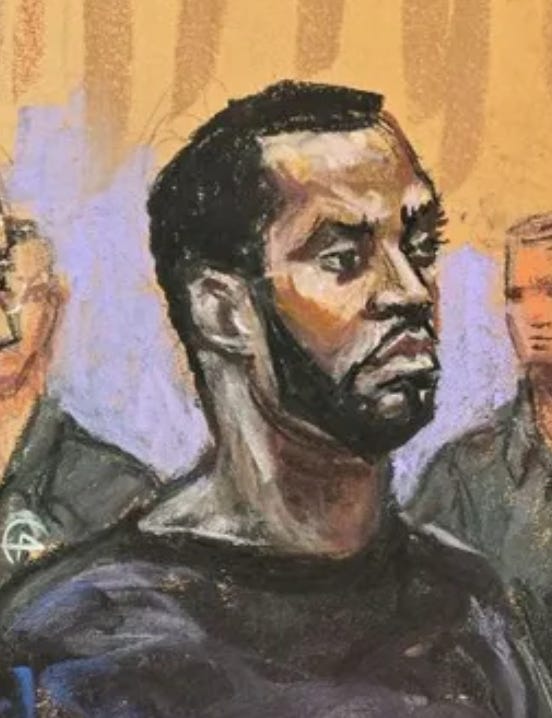
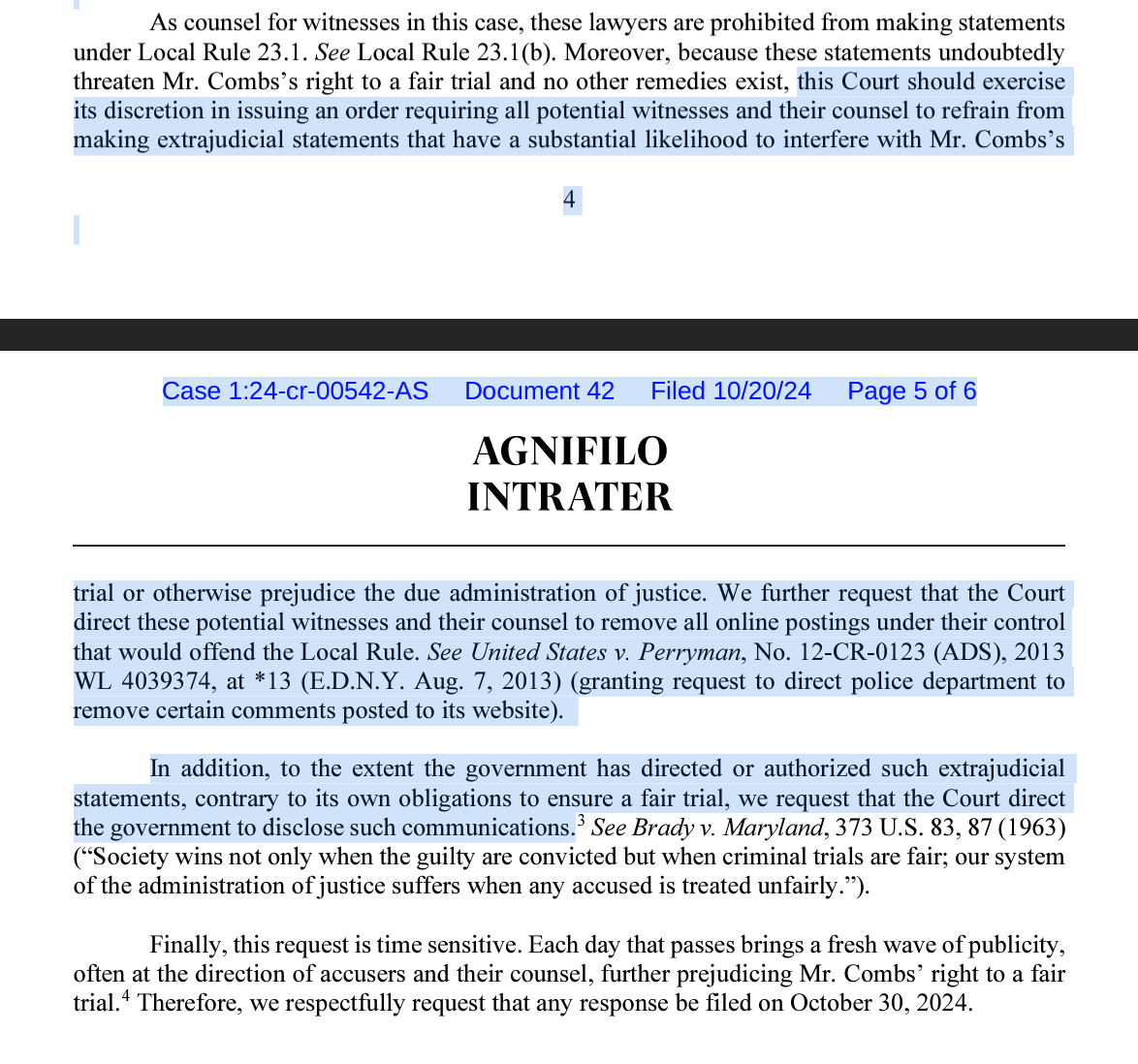
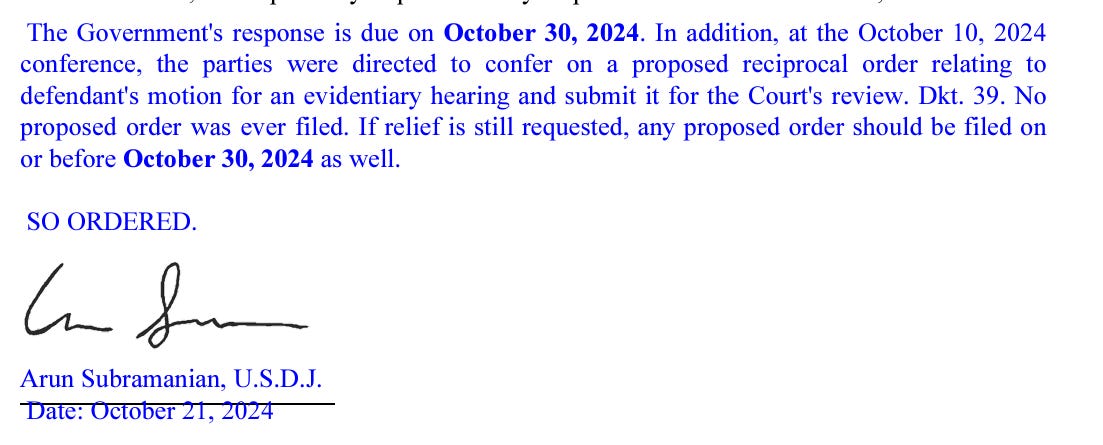
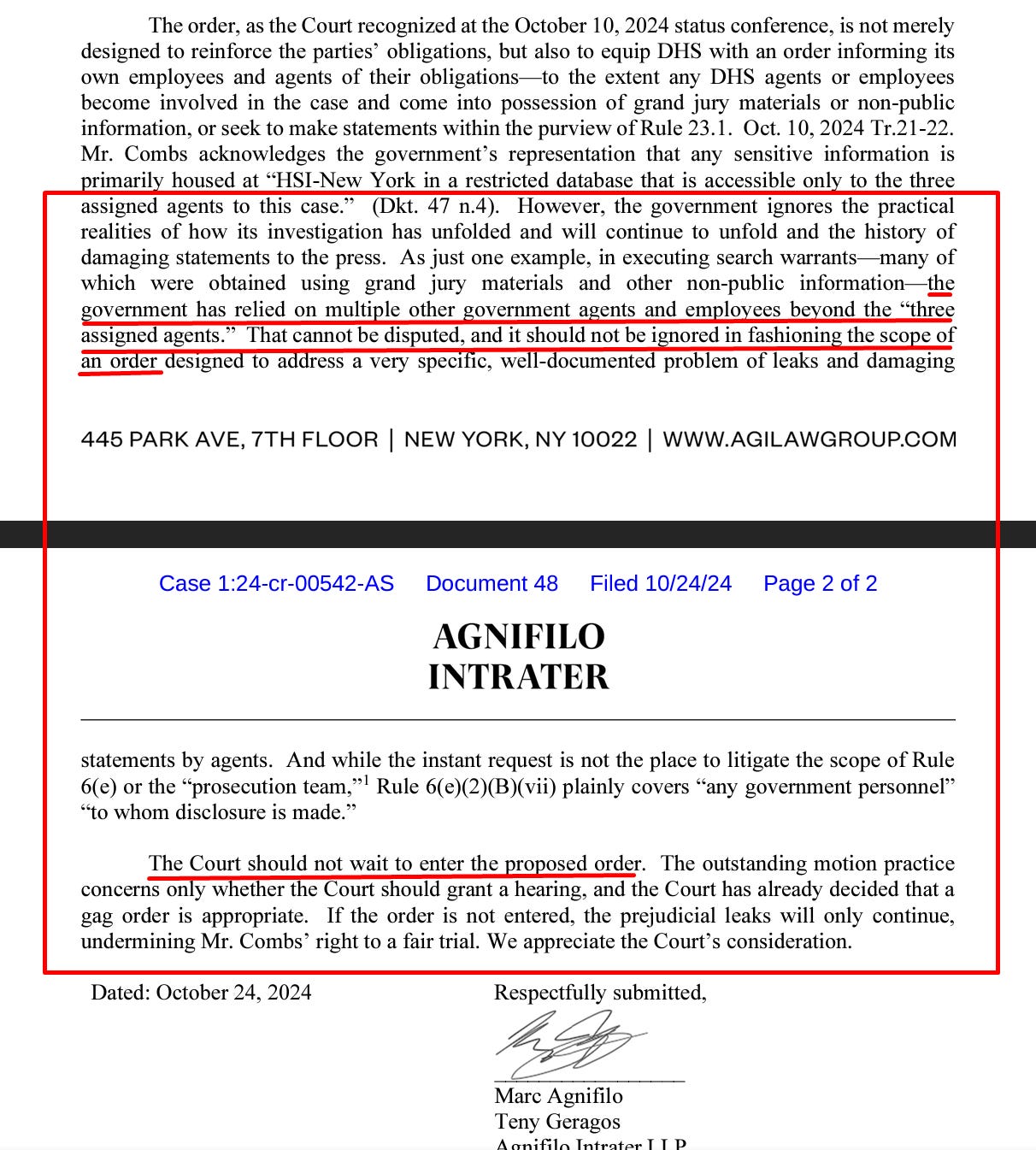
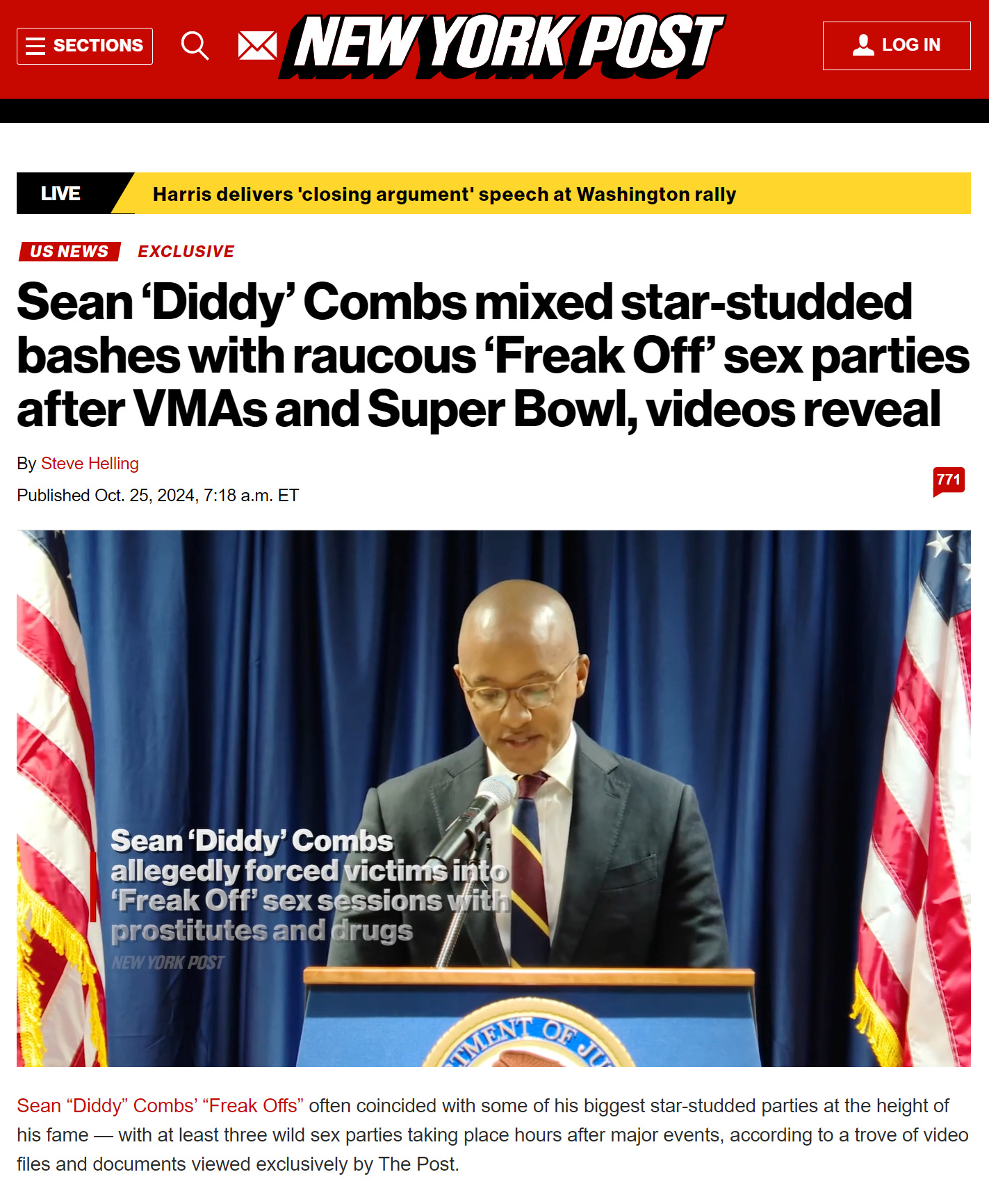
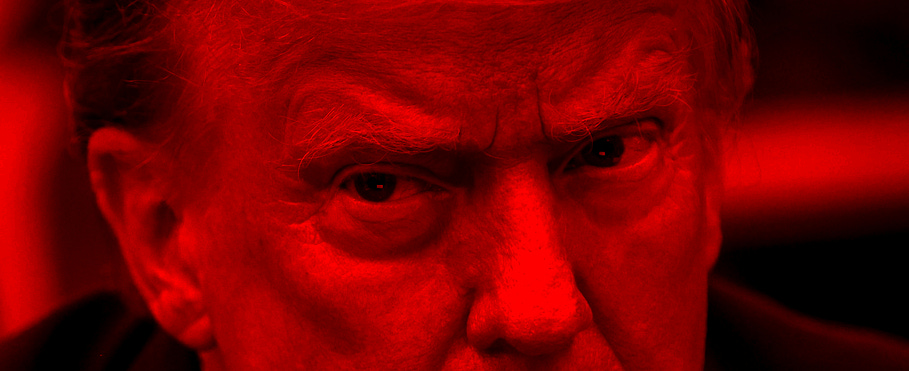
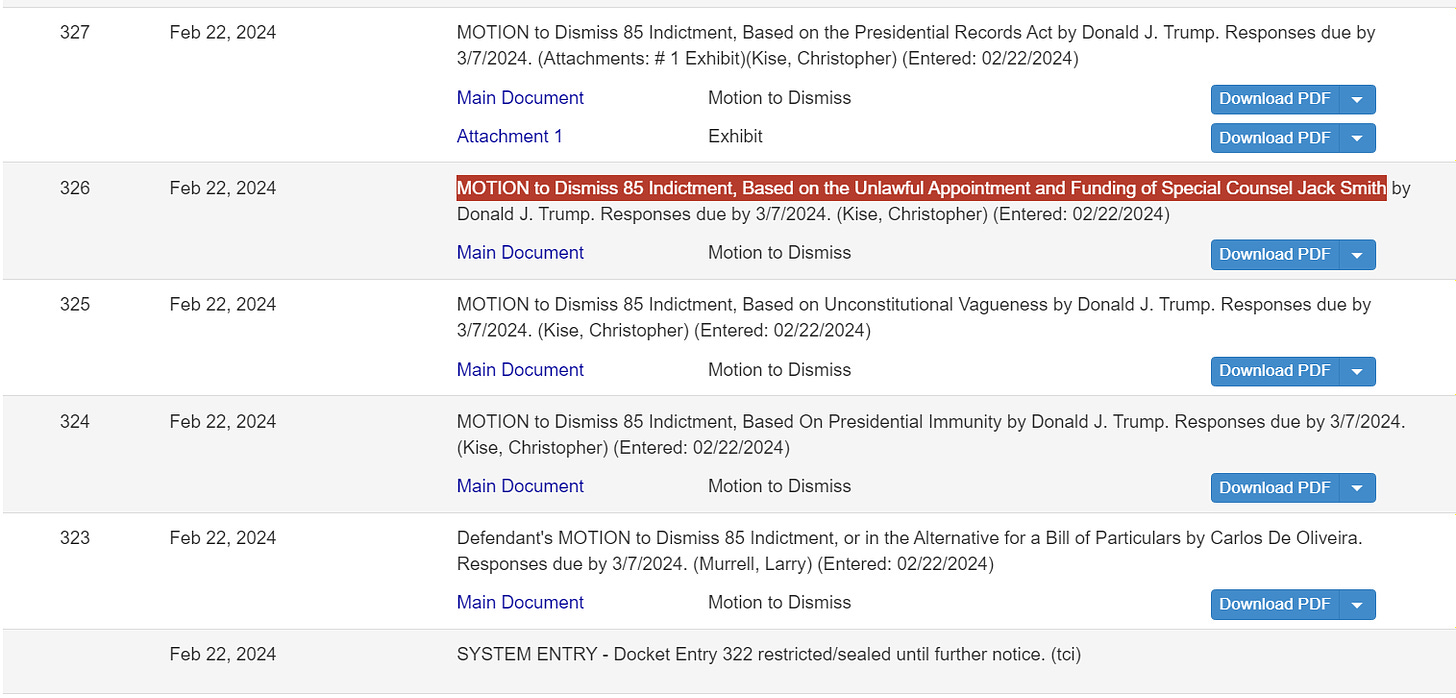

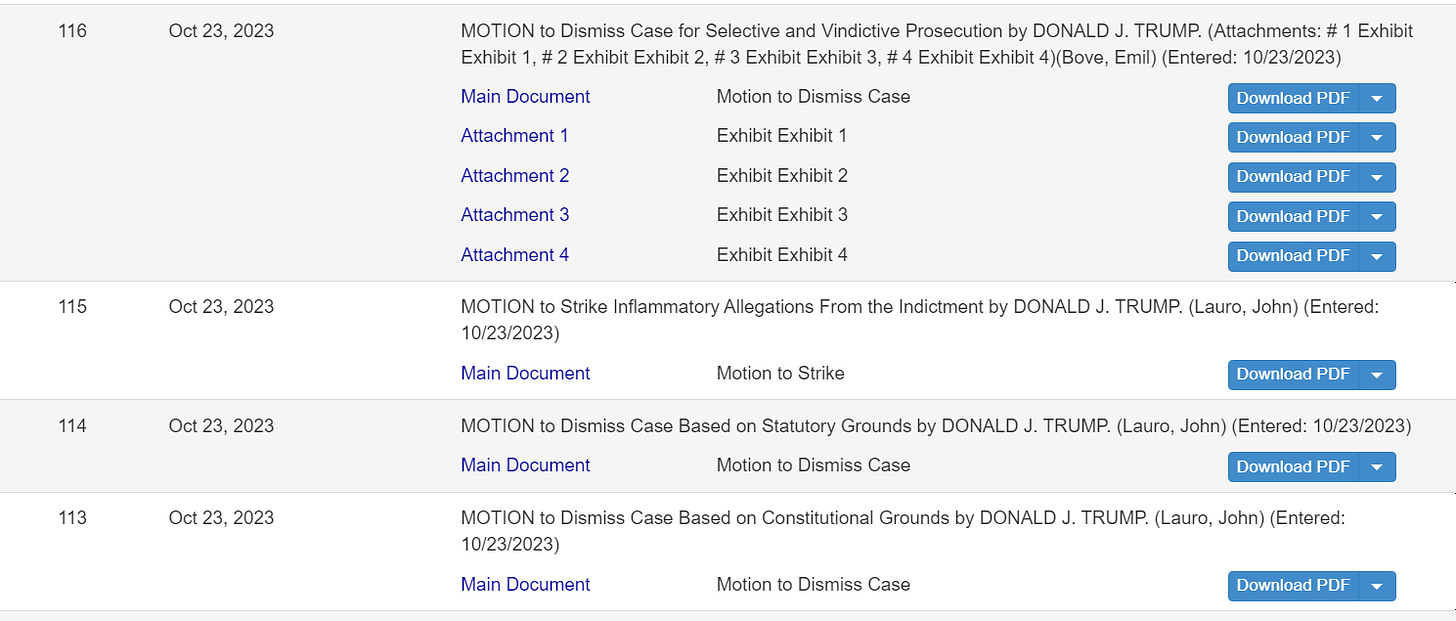
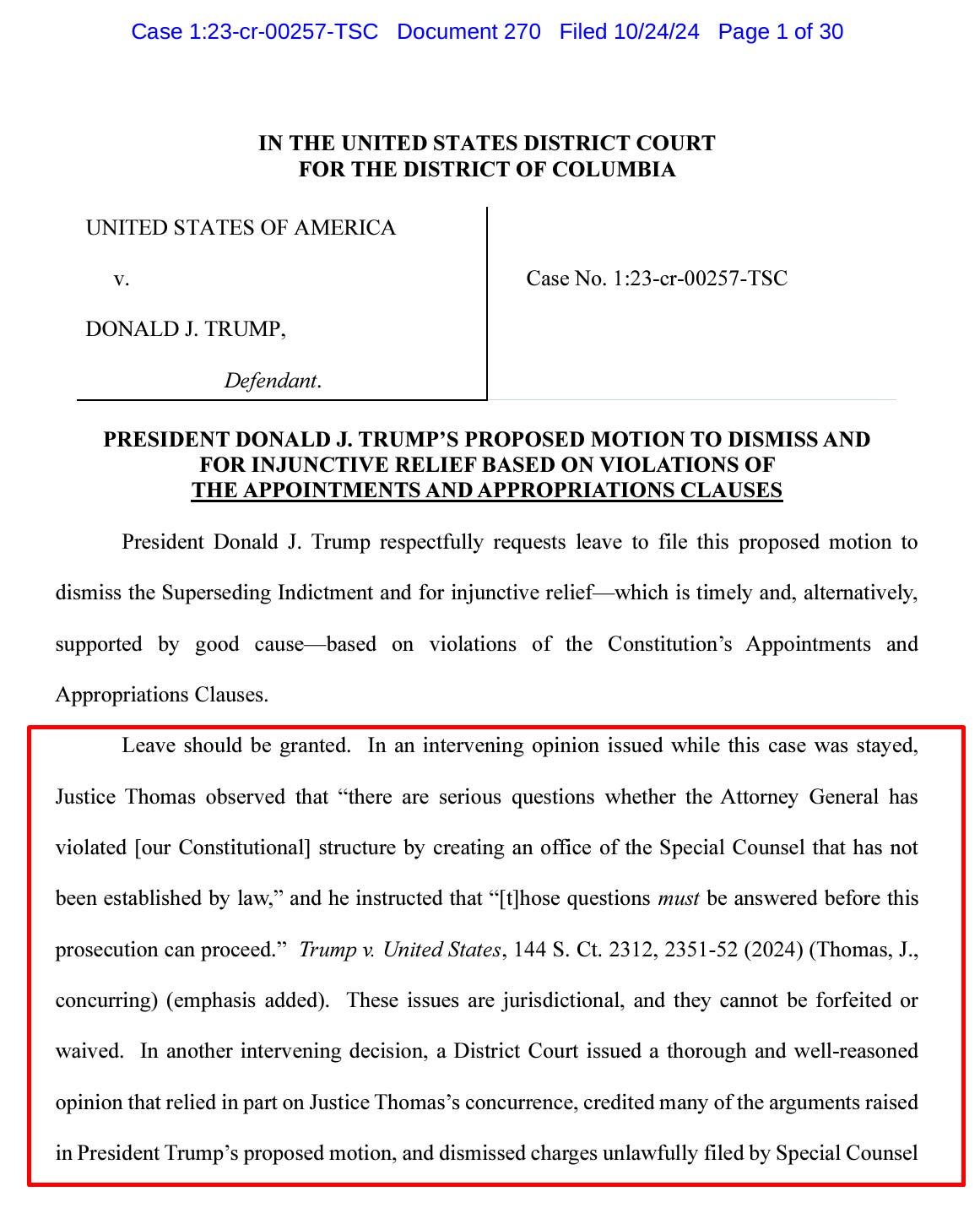
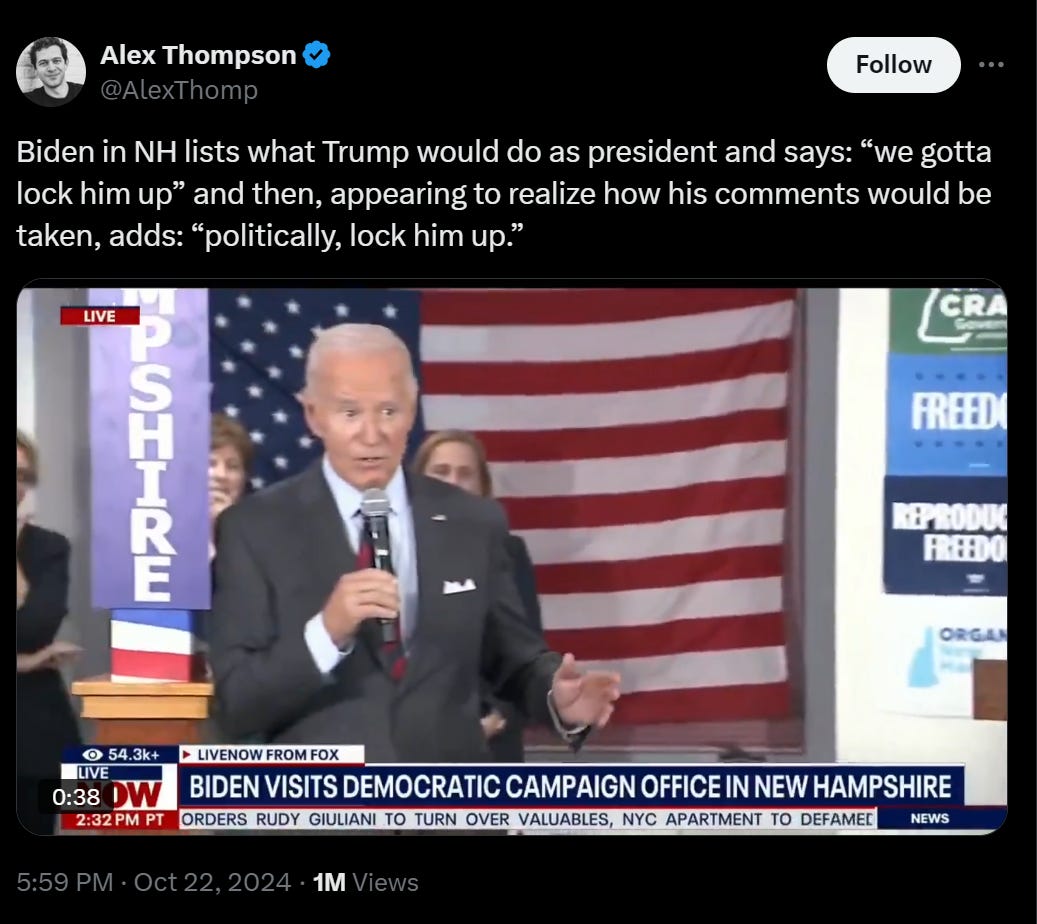
I’m really enjoying your newsletter Kyle. I do like the newsletter format, however I am definitely missing your long form podcasts and I hope you haven’t decided to stop doing them.
God bless you and your family Sir!!!
Thanks Kyle!